Current lab members can be found on this page. Web pages of previous lab members are here. A gallery of lab photos is here.
William Schafer

Bill was a graduate student at Berkeley with Jasper Rine, where he studied yeast biochemistry and cell biology. He was introduced to worms, and to neuroscience, as a postdoc with Cynthia Kenyon at UCSF. He started his lab at UCSD, then moved to the LMB in 2006, and started as professor in the Biology Department in Leuven in 2019. A copy of his CV is here. When he is not thinking about worm or octopus brains, he enjoys travel, running, rowing, and reading novels (soms in het Nederlands).
Denise Walker, PhD
Senior Scientist
dwalker(at)mrc-lmb.cam.ac.uk
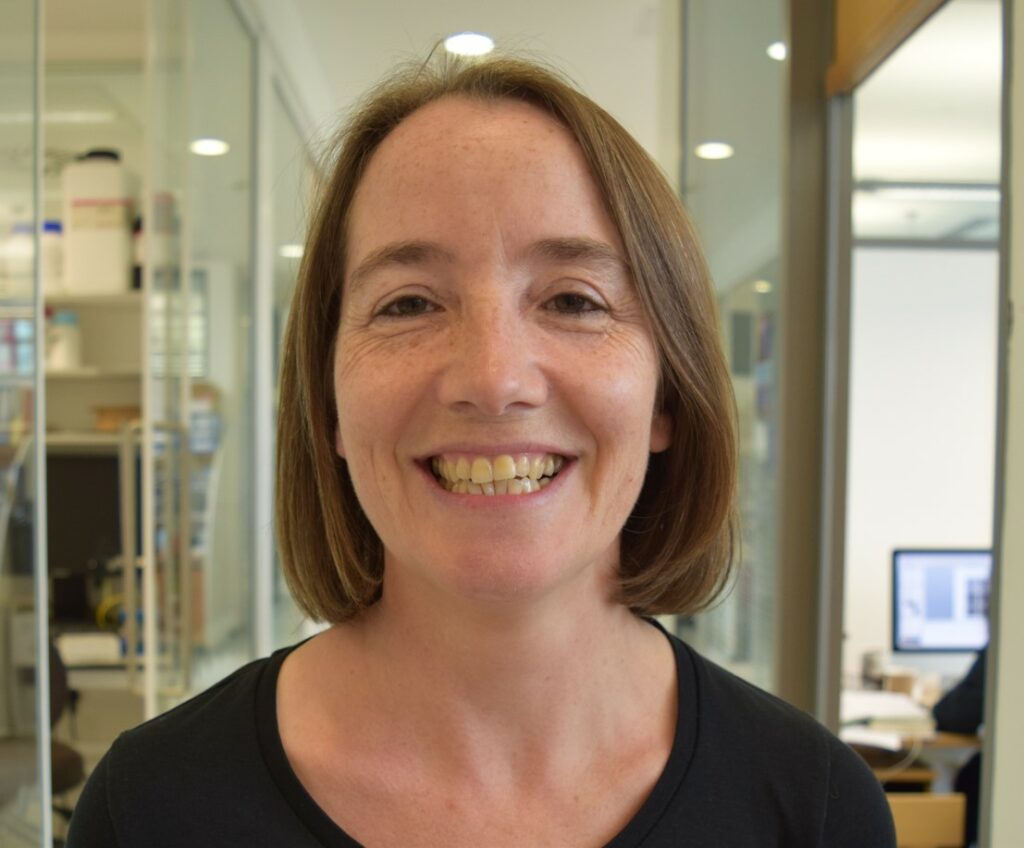
Denise studied Biology at Oxford University and gained her PhD in Microbial Genetics at Warwick University, before switching to Neuroscience with postdoctoral research on mammalian voltage gated calcium channels and C. elegans intracellular calcium stores, at the universities of Aix-Marseille and Cambridge, respectively. She joined the Schafer lab in 2007, where her work focuses on the degenerin/epithelial sodium channels (DEG/ENaCs). Firstly, she is interested in the molecular mechanisms of mechanosensation; the identity of the components of the mechanotransduction machinery and the molecular basis for their distinct localisation and functional properties. Secondly, she is interested in the acid-sensing members of the DEG/ENaC family and their diverse roles in biological rhythms and synaptic plasticity. Outside the lab, you’ll find her experimenting in her veg garden, organising her village open gardens event or seeking out hills to walk in.
Amy Courtney, PhD
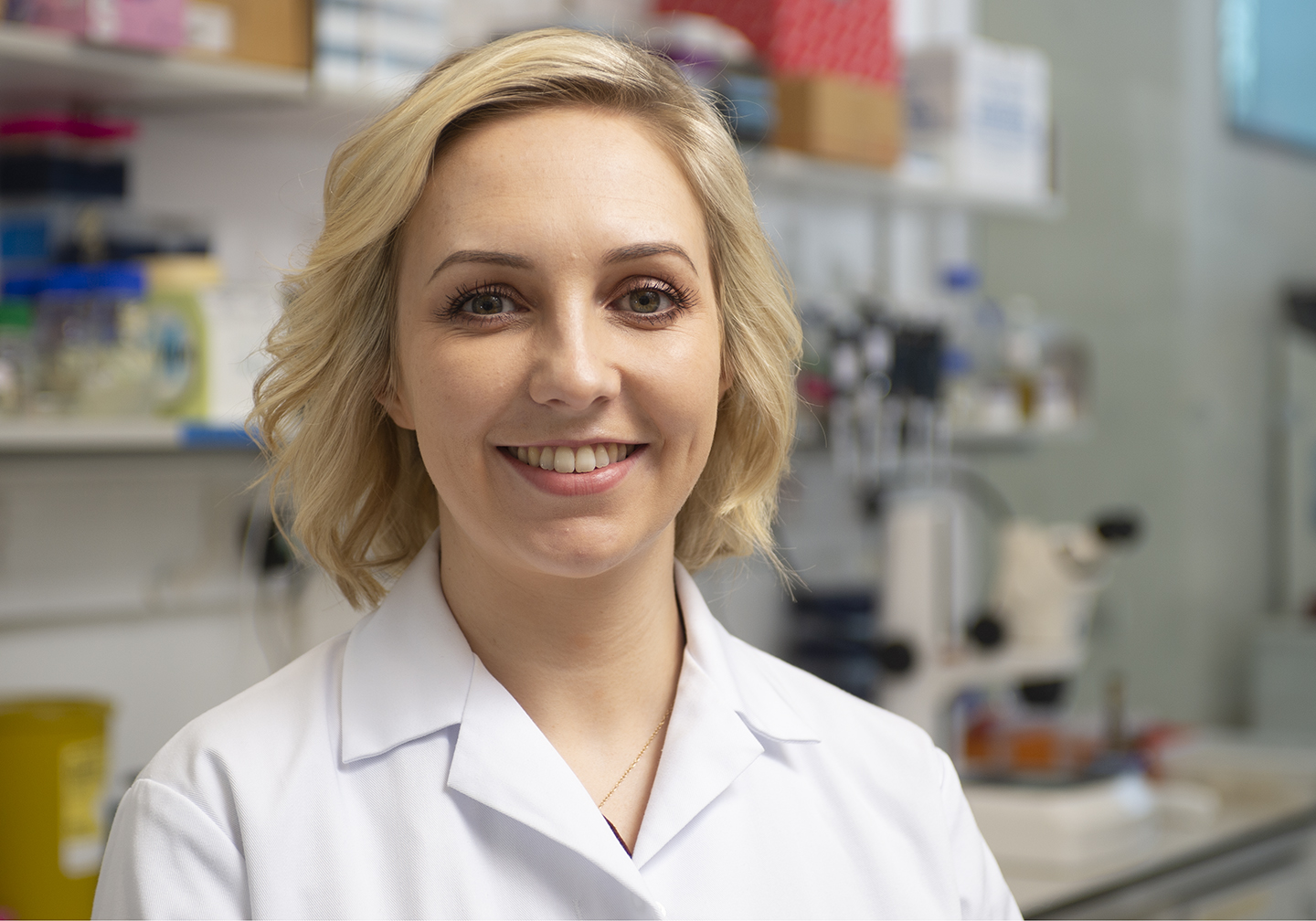
Amy obtained her BSc in Biomedical Sciences from University College Dublin, Ireland. She also obtained her PhD in UCD in the Lab of Dr. Mark Pickering where she established the comb jelly Pleurobrachia pileus as a model organism for systems neuroscience. Her PhD involved the development of aquarium and imaging systems, and answering fundamental questions about the structure of their nervous system and their behavioural repertoire. She started as a Postdoc in Bill Schafer’s lab in January 2020, and here she has been examining the evolution of ligand-gated ion channels in Octopus vulgaris and the role they play in processing visual information. She regularly visits and collaborates with the lab of Eve Seuntjens in KU Leuven, Belgium to undertake this project. In her spare time she enjoys watching reality TV shows and dancing.
Lidia Ripoll-Sánchez, PhD

Lidia obtained her BSc and ARCS in Biochemistry from Imperial College London, United Kingdom. As part of her undergraduate studies she worked with Dr. Andre Brown helping identify the main phenotypic features required to define a C. elegans strain with the software Tierpsy. She then joined the Schafer lab as a RA in 2018, continuing onto a PhD in 2020, co-supervised by Prof. Petra Vertes in the Department of Psychiatry at the University of Cambridge. During her PhD studies she used computational and experimental approaches to construct and investigate the behavioural roles of neuropeptide-mediated networks in the nervous system of Caenorhabditis elegans. She is currently a postdoctoral researcher at the Schafer lab investigating further the role of neuropeptide networks in evolution and development. In her spare time she enjoys sailing, taking part in competitions representing the University of Cambridge, and painting.
Jun Meng, PhD

Jun obtained her BVM at China Agricultural University. For her MSc, she studied synaptic remodelling in C. elegans GABAergic neurons in Yingchuan Qi’s lab. She then completed her PhD at the University of Toronto under the supervision of Dr. Mei Zhen, where she explored neural circuits for motor state transitions. Since 2023, Jun has focused on how potassium channels regulate synaptogenesis and function maintenance in C. elegans at the Schafer Lab (KU Leuven), employing methods including fluorescent microscopy and electron microscopy. Outside of her research, she enjoys spending time at home with her Akita Inu and exploring nature together.
Saurabh Thapliyal, PhD
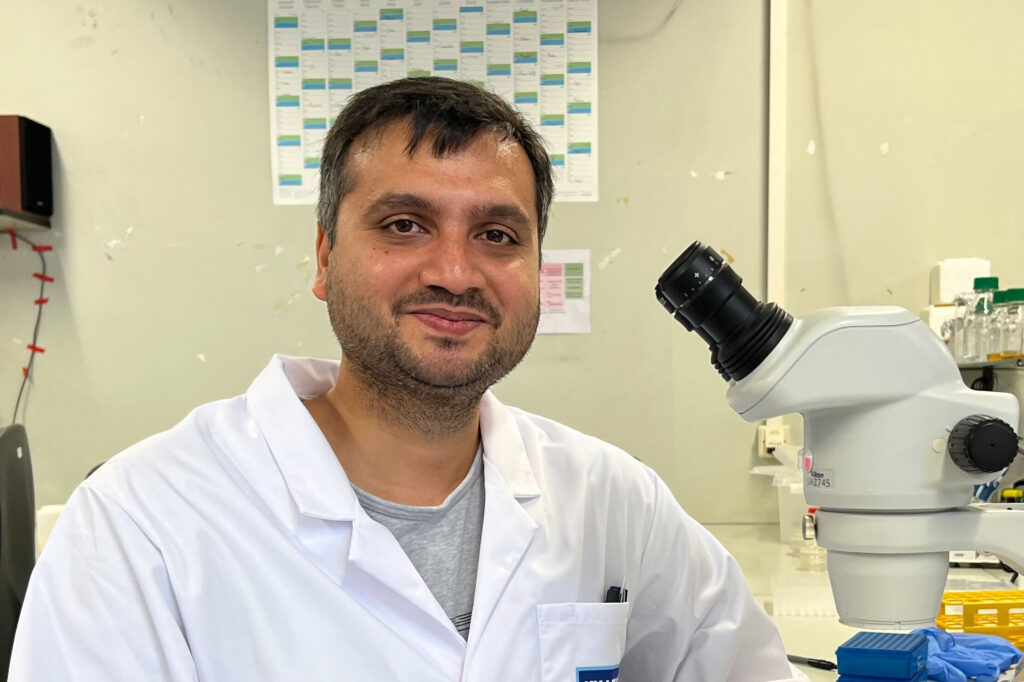
Saurabh obtained his BS-MS dual degree in Biological Sciences from IISER Mohali, India. He then moved to the University of Fribourg, Switzerland to obtain his PhD in Prof. Dominique Glauser’s lab where he combined quantitative phenotyping with in vivo imaging to study temperature-dependent behavioral states and transitions in C. elegans. He started as a postdoc in Schafer and Beets lab in 2024 to study the role of neuropeptide signaling in the behavior and physiology of C. elegans. In his spare time, he enjoys long walks, watching TV and playing badminton.
Larissa Ferguson, PhD
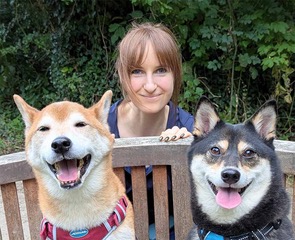
Larissa did her PhD in neuroscience in the lab of Dr. Wayne Sossin at McGill University, Montreal, Canada, working on mechanisms of synaptic memory in the sea slug, Aplysia californica. She joined the Schafer lab as a postdoc in 2021 and is currently developing a computational approach for in silico screening of peptide agonists for GPCRs. Outside of the lab, she devotes all of her free time to doting on her dogs and dragging them on adventures.
Keertana Venkatesh

Keertana obtained her bachelor’s degree in Microbiology-Biochemistry at St. Xavier’s College, Mumbai, India, and went on to pursue a research-based master’s in Biology at the Tata Institute of Fundamental Research, India in Prof. Sandhya Koushika’s lab. During her master’s she characterized synaptic vesicle transport properties in C. elegans, specifically bidirectional motion of synaptic vesicles along the neuronal process and its role in regulating cargo transport. She joined the Schafer lab as a PhD student co-supervised by Prof. Isabel Beets in 2021. Her PhD work focuses on investigating the role of conserved neuropeptide systems for arousal and feeding behaviors in C. elegans. In her spare time, Keertana enjoys dancing and cooking.
Li Chen
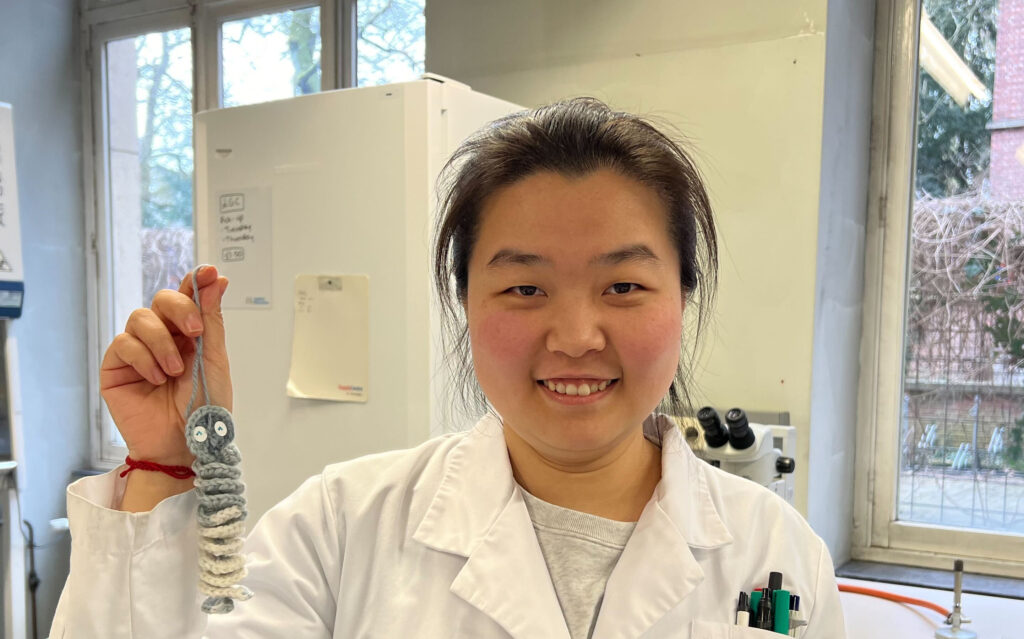
Li obtained her bachelor’s degree from South China Agricultural University in China, and her master’s degree in Biology from KU Leuven. During her master’s studies, she worked on mapping whole-brain inputs to neural circuits governing mouse escape behaviors in the lab of Prof. Karl Farrow, Neuro-Electronics Research Flanders. Her PhD project in Leuven, co-supervised by Bill Schafer and Isabel Beets, focuses on understanding the physiology and functions of two-pore domain potassium (K2P) channels in C. elegans. In her spare time, she enjoys binging detective dramas and playing with her guinea pigs.
Joseph Gehler-Rahman

Joe earned his BA with a double major in Neuroscience and Philosophy from the University of Pennsylvania. He worked in biotechnology investing for two years before joining the lab of Dr. Richard Poole at UCL for his MSc, where he studied the regulation of a neurogenic asymmetric cell division in C. elegans. He moved to the LMB for his PhD in 2023, where he studies the unique role of RNA editing in the coleoid nervous system using Octopus vulgaris as a model. In his free time, Joe enjoys reading science fiction and spending time with his wife and cat.
Isabel Conze
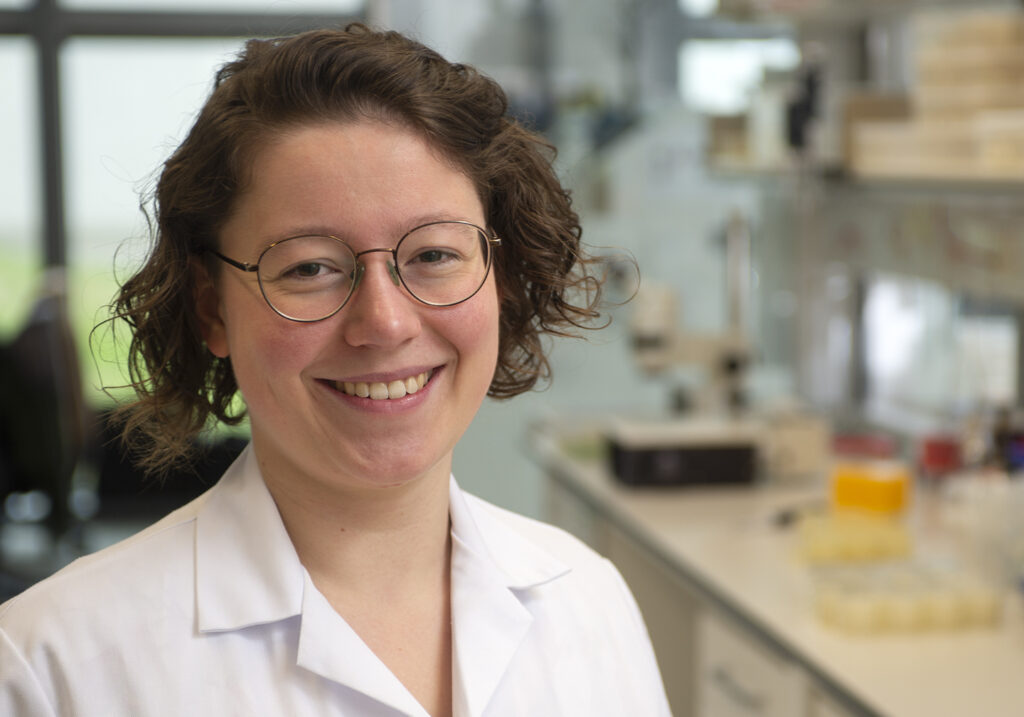
Isabel earned her master’s degree in Biology of Ageing at the University of Cologne, Germany, where she conducted her thesis research in Prof. Dr. Hoppe’s laboratory at the CECAD. Her work focused investigating the link between the olfactory system and proteostasis efficiency in C. elegans. She joined the Schafer lab as a PhD student in 2023 to explore the role of neuropeptidergic signalling in environmental responses, with a particular focus on how its regulation is influenced by varying nutrient availability. She is passionate about uncovering the mechanisms that govern these processes in C. elegans. Outside of her research, Isabel enjoys participating in College rowing and frequents climbing gyms in and around Cambridge.
Elke van Rooij

Elke earned her BSc and MSc in Biology from KU Leuven. For her master’s thesis, she explored octopus neurogenesis in the lab of Prof. Dr. Eve Seuntjens, focusing on the spatiotemporal patterning of the canonical Wnt signalling pathway. In 2024, she continued in the same lab as a PhD student under the co-supervision of Bill, investigating neuropeptidergic signalling in the visual system of coleoid cephalopods, using Octopus vulgaris as a model organism. In her free time, she enjoys cycling, athletics, and watching TV series.
Anna Jansson

Anna is a recent MPhil student from the Basic and Translational Neuroscience program, having completed her research project in the Schafer Lab exploring monoamine G-protein coupled receptors (GPCRs) in O. vulgaris. She has stayed on as a visiting researcher in the lab, exploring dopamine GPCRs in the visual system. Anna received her BS in Neurobiology and Chemistry from the University of Wisconsin-Madison in 2023. In her free time she enjoys doing lots of fiber arts, including knitting and spinning yarn.